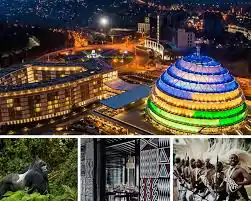Rwanda: The Land of a Thousand Hills, Primates & Profound Renewal
Why Rwanda is a Compelling Destination:
Rwanda, affectionately known as "Le Pays des Mille Collines" (the Land of a Thousand Hills), is a nation of extraordinary natural beauty, remarkable resilience, and experiences that touch the soul. This small, landlocked country in the Great Rift Valley captivates visitors with its endlessly undulating emerald hills, mist-shrouded volcanic peaks, and verdant rainforests that are sanctuaries for some of the world's most endangered primates. The primary draw for many is the unparalleled opportunity to come face-to-face with the majestic mountain gorillas in their natural habitat – a profoundly moving and often life-changing encounter. Rwanda has made incredible strides in conservation, with a strong governmental commitment to protecting its natural heritage and promoting sustainable, high-end tourism, ensuring that visits directly contribute to the well-being of both wildlife and local communities.
Beyond the iconic gorillas, Rwanda offers a tapestry of diverse attractions. It is a country that has emerged from a tragic past with a spirit of hope and reconciliation that is palpable, particularly in its clean, safe, and progressive capital, Kigali. This journey of renewal is an integral part of the Rwandan story and offers a deeply enriching perspective for visitors. The montane rainforests of Nyungwe National Park are a biodiversity hotspot, home to chimpanzees and a myriad of other primate species, as well as breathtaking canopy walks. Akagera National Park, in the east, provides a contrasting savannah experience with the chance to see the "Big Five." The tranquil shores of Lake Kivu offer a serene escape with stunning vistas and recreational opportunities. Rwanda's compact size makes it relatively easy to navigate, allowing travelers to experience its diverse offerings within a shorter timeframe, all while being enveloped by the genuine warmth and hospitality of the Rwandan people. It is a destination that offers not just adventure, but also deep reflection and inspiration.
A Spectrum of Activities: What to Do in Rwanda:
Rwanda packs a remarkable diversity of activities into its compact frame, ensuring a rich and varied itinerary.
Mountain Gorilla Trekking (Volcanoes National Park): This is the quintessential Rwandan experience. Treks involve guided hikes through the dense bamboo forests and volcanic slopes of the Virunga Mountains to spend a magical hour observing a habituated gorilla family. The experience is intimate, strictly regulated for the gorillas' well-being, and incredibly rewarding.
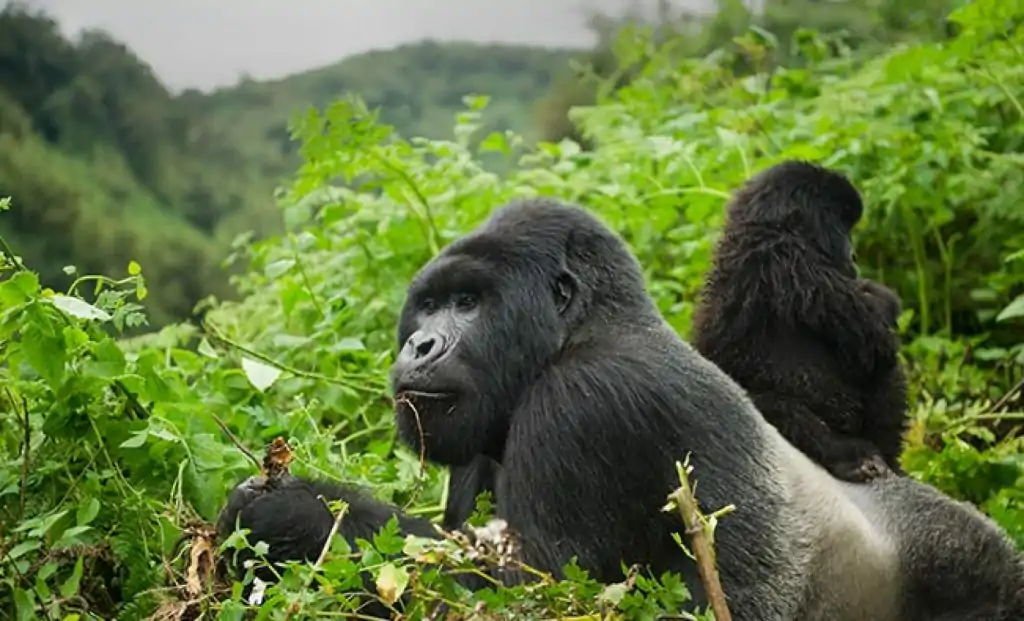
Chimpanzee & Primate Tracking (Nyungwe Forest National Park): Nyungwe is one of Africa's oldest and most biodiverse rainforests. Guided treks offer the chance to track chimpanzees, as well as observe up to 12 other primate species, including large troops of Angolan colobus monkeys, L'Hoest's monkeys, and grey-cheeked mangabeys.
Golden Monkey Trekking (Volcanoes National Park): Another popular primate activity, tracking the playful and strikingly colored golden monkeys, which are endemic to the Virunga volcanic region. These treks are generally less strenuous than gorilla treks.
Volcano Hiking & Mountaineering: For the adventurous, Volcanoes National Park offers opportunities to hike several of the Virunga peaks. Mount Bisoke (3,711m) features a beautiful crater lake at its summit and is a popular day hike. The more challenging Mount Karisimbi (4,507m), Rwanda's highest point, is typically a two-day trek.
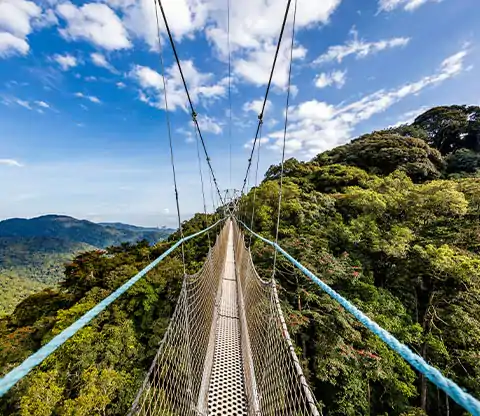
Nyungwe Forest Canopy Walk: Experience the rainforest from a unique aerial perspective on East Africa's highest canopy walkway. Suspended 70 meters above the forest floor and 160 meters long, it offers breathtaking views of the forest canopy and the chance to spot birds and primates.
Cultural & Historical Immersion: Gain a deeper understanding of Rwanda's past and present. A visit to the Kigali Genocide Memorial is a deeply moving but essential experience, offering insight into the 1994 genocide and the country's journey towards healing. Explore the King's Palace Museum in Nyanza for a look into Rwanda's pre-colonial history and royal traditions, complete with the revered Inyambo (sacred long-horned) cows. The Iby’Iwacu Cultural Village (now Gorilla Guardians Village) near Volcanoes National Park offers engaging cultural performances and insights into traditional Rwandan life by former poachers who now champion conservation.
Birdwatching: Rwanda boasts a rich avian diversity with over 700 bird species, including many Albertine Rift Endemics. Nyungwe Forest (for forest species), Akagera National Park (savannah and wetland birds), and the various lakes and wetlands are prime birding locations.
Relaxation & Activities on Lake Kivu: This stunning freshwater lake, one of Africa's Great Lakes, forms a natural border with the Democratic Republic of Congo. Its picturesque shores are dotted with towns like Rubavu (formerly Gisenyi) and Karongi (formerly Kibuye). Enjoy kayaking, boat trips to islands (like Napoleon Island with its fruit bats), swimming, coffee plantation tours along the shores, or simply relaxing and taking in the views. The Congo Nile Trail, a 227km route for hiking and biking, runs along its length.
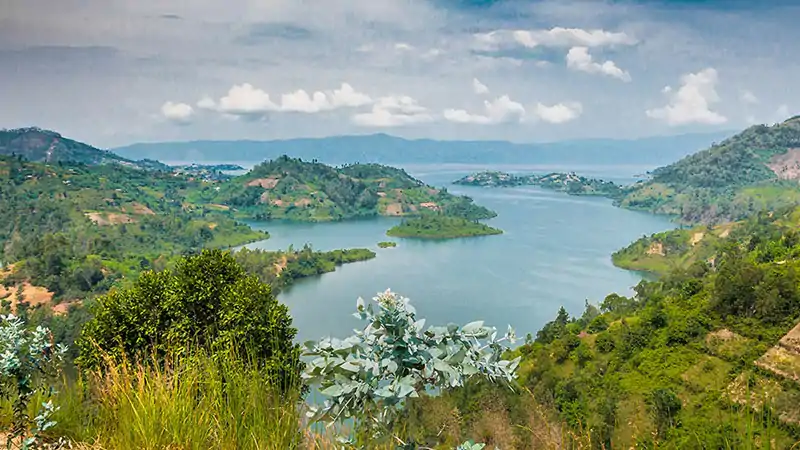
Coffee & Tea Plantation Tours: Rwanda is renowned for its high-quality coffee and tea. Numerous plantations offer tours where you can learn about the entire process, from bean or leaf to cup, often including a tasting session. This is a great way to support local communities and understand a key part of Rwanda's economy.
Exploring Kigali: Rwanda's capital is a remarkably clean, safe, and vibrant city. Explore its burgeoning art scene at galleries like the Inema Arts Centre and Niyo Arts Gallery, shop for local crafts at Kimironko Market, visit the Kandt House Museum of Natural History, and enjoy the city's growing culinary scene.
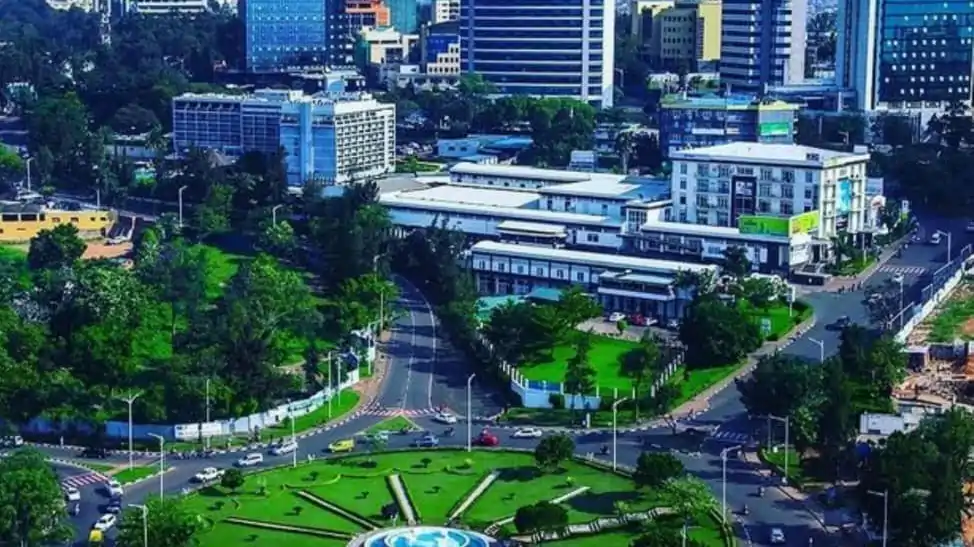
Savannah Safaris in Akagera National Park: Experience a more traditional East African safari in Akagera, which has seen a remarkable revival. Game drives offer the chance to see lions, elephants, buffalo, giraffes, zebras, various antelope species, and recently reintroduced black rhinos and white rhinos, making it a "Big Five" destination. Boat trips on Lake Ihema within the park are excellent for hippos, crocodiles, and waterbirds.
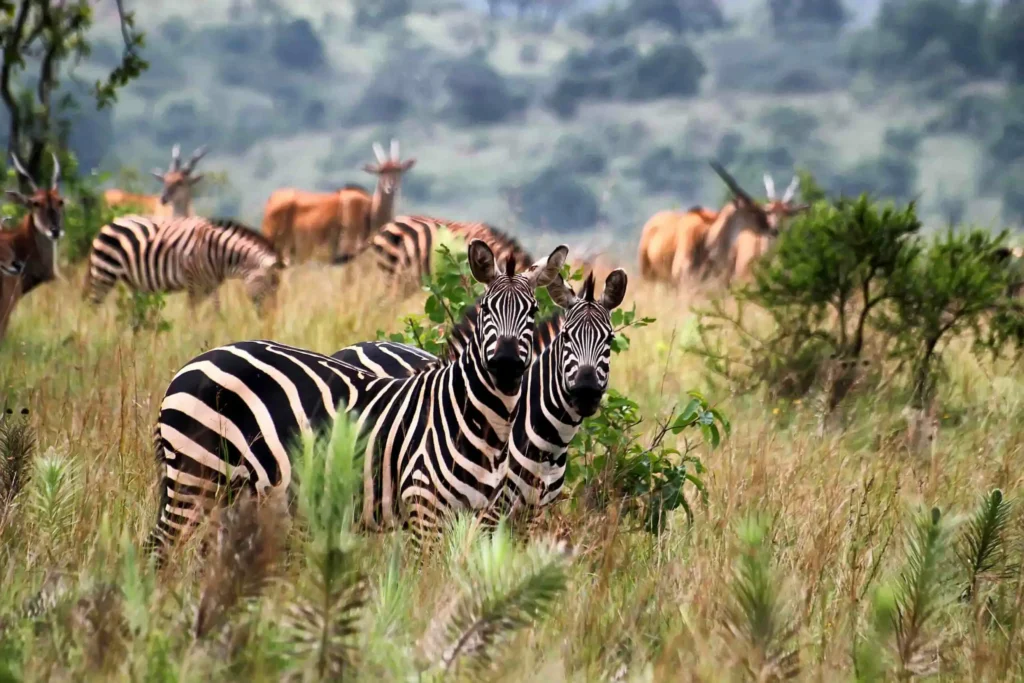
Key Destinations: Where to Visit in Rwanda:
Volcanoes National Park (Parc National des Volcans): Situated in northwestern Rwanda, this is the country's premier attraction, globally renowned as a sanctuary for the endangered mountain gorilla. It encompasses five of the eight Virunga Volcanoes. Besides gorilla trekking, it's the site for golden monkey tracking, hikes to Dian Fossey's former research station and grave, and challenging volcano climbs.
Nyungwe Forest National Park: Located in southwestern Rwanda, this is one of Africa's largest and best-preserved montane rainforests. It's a haven for primates, boasting 13 species, including chimpanzees and huge troops of Angolan colobus monkeys. It's also famous for the thrilling Nyungwe Canopy Walkway and is a top birding destination with numerous Albertine Rift endemics.
Akagera National Park: Found in eastern Rwanda, bordering Tanzania, Akagera offers a contrasting landscape of savannah plains, woodlands, lakes, and papyrus swamps. Following significant conservation efforts, including the reintroduction of lions and rhinos, it is now a "Big Five" destination. Boat safaris on Lake Ihema are a highlight.
Lake Kivu: This magnificent lake, part of Africa's Great Rift Valley, offers stunning scenery with its irregular shoreline, numerous islands, and backdrop of volcanic mountains. The main lakeside towns for tourism are Rubavu (near the DRC border, offering a lively atmosphere and beaches), Karongi (known for its beautiful bays and pine-covered hills), and Rusizi (a gateway to Nyungwe).
Kigali: The capital and largest city of Rwanda is a testament to the nation's progress. It's known for its remarkable cleanliness, safety, and order. Key attractions include the Kigali Genocide Memorial, the Kandt House Museum, Inema Arts Centre, Kimironko Market, and the developing downtown area with its convention center and modern architecture.
Gishwati-Mukura National Park: Rwanda's newest national park, formed by joining the Gishwati and Mukura forests. It's an important area for biodiversity, protecting chimpanzees, golden monkeys, L'Hoest's monkeys, and blue monkeys, as well as numerous bird species. Tourism is still developing but offers opportunities for guided nature walks and primate viewing.
The King's Palace Museum (Nyanza) & Ethnographic Museum (Huye): For deep cultural insights, the King's Palace Museum in Nyanza offers a fascinating look at the traditional Rwandan monarchy, including a replica of the king's thatched palace and the revered Inyambo cattle. The Ethnographic Museum in Huye (formerly Butare) is considered one of the finest in East Africa, showcasing comprehensive exhibits on Rwandan history, culture, crafts, and traditions.
Musanze Town (formerly Ruhengeri): This town serves as the main gateway to Volcanoes National Park. It offers a range of accommodation options, restaurants, and shops, and is a good base for exploring the park and surrounding areas. Twin Lakes Burera & Ruhondo: Located near Volcanoes National Park, these beautiful crater lakes offer stunning scenery, boat trips, and opportunities for birdwatching and community visits.

